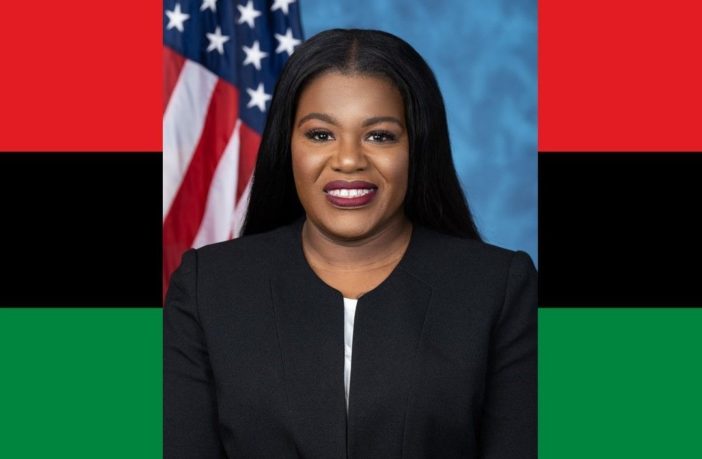Regarding the fight for reparations, in the words of Detective Marcus Burnett (Martin Lawrence’s character in the “Bad Boys” movies), “Sh*t just got real.
Not only did California’s reparations task force recently voted to approve recommendations on how the state may compensate and apologize to Black residents for generations of harm caused by discriminatory policies; recommendations some economists estimate to come in at upwards of $800 billion, U.S. Congresswoman Cori Bush (D-Mo.) seeks to make this push national.
And though attempts to get the U.S. Congress to move on reparations is not new (check the decades of work by the late U.S. Rep. John Conyers and current U.S. Rep. Sheila Jackson Lee, along with the grassroots efforts of N’COBRA), Bush is now introducing the Reparations Now Resolution, urging Congress to provide at least $14 trillion in reparations to descendants of enslaved Africans.
“We need to push this right now,” Bush told The Root. “It’s 2023, and the U.S. federal government still has not acknowledged the atrocities that came at the hands of this government.”
And though some scoff at Bush’s $14 trillion number, it’s far lower than the number computed by Shawn Rochester, personal finance consultant and author of “The Black Tax: The Cost of Being Black in America.”
Rochester puts the total at $70 trillion, factoring in the loss of more than six million jobs and 1.4 million businesses, among other things (i.e., the theft of 12 million acres of land from Black farmers, the denial of GI Bill benefits to the majority of Black veterans, the loss of land and businesses due to white domestic terrorism, redlining, the theft of Black labor during and after enslavement, etc.). Rochester contends these losses are the foundation of the ongoing racial wealth gap that continues to plague our society.
Similar to Rochester’s work, Bush’s resolution came with receipts to back up the $14 trillion ask.
“Our bill breaks down the value of cotton produced by enslaved Africans … the economic advancement of the United States through cotton, and how there has never been any repayment for the harm done to those enslaved,” said Bush, who contends her resolution goes beyond the damage done to Blacks during enslavement, and also speaks to ongoing government-sanctioned harms like mass incarceration and lynchings.
“What we’re talking about is freedom and equity and calling on this country to acknowledge the harm that it has inflicted,” she said.
And before the usual Republican chorus of “white-splaining” the words and intent of the Reverend Dr. Martin Luther King Jr., and claiming he would stand against any measures that didn’t merely judge a person by the “content of their character,” it’s important to note, as award-winning author Ta-Nehisi Coates and others have pointed out: that MLK was about that reparations life.
In fact, during MLK’s last sermon just four days before he was murdered in Memphis, titled “Remaining Awake Through a Great Revolution,” he preached:
There are those who still feel that if the Negro is to rise out of poverty, if the Negro is to rise out of slum conditions, if he is to rise out of discrimination and segregation, he must do it all by himself … But they never stop to realize the debt that they owe a people who were kept in slavery 244 years.
In 1863 the Negro was told that he was free as a result of the Emancipation Proclamation being signed by Abraham Lincoln. But he was not given any land to make that freedom meaningful. It was something like keeping a person in prison for a number of years and suddenly, suddenly discovering that that person is not guilty of the crime for which he was convicted. And … you don’t give him any money to get some clothes to put on his back or to get on his feet again in life.
King, too, put a price tag on Black pain, endorsing a $50 billion federal aid program (in 1968 dollars) for Blacks. That amount today would equal roughly $4.4 trillion. That’s not as much as Bush seeks, but it is $4.4 trillion more than GOP “MLK experts” claim he sought for the generational oppression of Black people.
The likelihood of a Republican-led House supporting Bush’s resolution may be none-and-none, but like MLK, Conyers, Jackson Lee, James Foreman (whose “Black Manifesto” demanded $500 million in reparations in 1969 dollars), members of N’COBRA and the National Black United Front, Bush says the conversation must continue.
“We have to get the conversation going. We have to speak to all of the horrifying things that went down.”
TheRoot.com contributed to this article.



